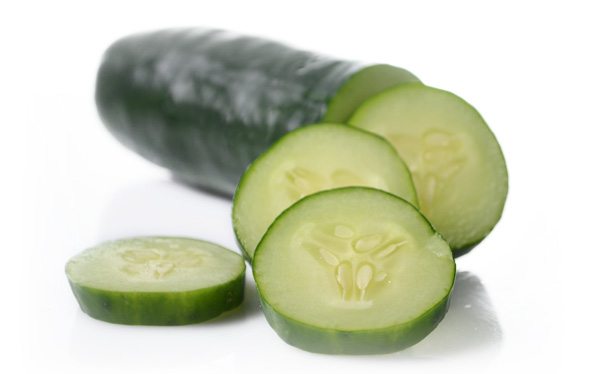
Sit back, relax and maybe put two slices of cucumbers on your eyes (just for a few minutes though, because you will want to read this article). Cucumbers belong to the same family as melons and squashes called Curcubitaceae, and there are three main varieties: slicing, the ones you will usually find in the grocery store; pickling, specifically grown to be pickled; and burpless, which offer a sweeter taste than other varieties and are seedless. Botanically speaking, the cucumber is considered a fruit, though most people refer to it as a succulent and crispy vegetable. Cucumbers are known to be great in salads, but nowadays they’re even great used as a cocktail ingredient or innovative flavoring for frozen yogurt.
According to www.newworldencylopedia.org, the cucumber has been cultivated in Western Asia for at least 3000 years, and was likely introduced to Europe by Romans. It was in the Roman Empire that cucumbers became popular within all classes, not only as a food source, but also as a medicinal remedy. Some of those remedies treated bad eyesight and even healed scorpion bites. Such was the fascination for this vegetable that Emperor Tiberius, ruler of Rome from year 14 to 37, ate a cucumber a day, as reported by www.natureandmore.com. The cucumber made its way to the Americas in the mid-16th Century, and in recent years, chefs have developed some enticing recipes with it.
Move over lemon, the cucumber has entered a new era! The cucumber has easily become a staple in the cocktail world. Due to its consistency, this fruit is an easy pairing for different cocktails because it doesn’t intrude on the original flavors. Food and Travel blog, Toovia, has listed the Top Ten cucumber-inspired cocktail recipes, such as the Cucumber & Jalapeño Margarita, and the Lillet-Basil Cocktail as recipes to try. The digital publication also suggested the Strawberry- Cucumber Balsamic Smash as a great way to pair cucumber with other fruit.
Incorporating cucumbers into desserts presents endless options. During the summer season, consider blending the paletas and alcohol pairing trends with a Cucumber Gin & Tonic Frozen Pop. An alcohol-free menu alternative includes Cucumber-Raspberry Pops.
In addition to incorporating cucumber into a variety of recipes, take advantage of the health benefits of the cucumber by simply adding a few slices to water, making it easier to drink those 8 glasses a day. According to Weight Watchers®, the national weight-loss support organization, the cucumber is a powerhouse of high nutritional value that is filling and boasts very few calories. Cucumbers contain a high level of vitamin B, which is a great component for natural energy drinks, and improves mental health. Additionally, the popular phrase “cool as a cucumber” is pretty accurate in relation to the topic of overall health. The term is used due to the cucumber’s ability to cool the temperature of the blood when applied topically and eases facial swelling. It is still being researched for its cancer-fighting benefits, ranging from antiproliferation and cell cycle arrest, to induction of apoptosis. According to the U.S. National Library of Medicine- National Institutes of Health, these healthful advantages are a result of the cucumber’s cucurbitacin compound.
Considering all of the nutritional benefits of cucumbers, it is important to be mindful when picking fresh cucumbers. As prescribed by The George Mateljan Foundation – a not-for-profit organization with the mission to make a healthier world – it is recommended to choose cucumbers that have firm, rounded edges and that are bright, medium- to dark-green for the tastiest results.
The cucumber has changed the way we see a “vegetable”, and is being implemented into drinks, desserts and our overall diets. Forget about the face mask, extra cucumbers in the fridge call for innovative culinary experimentation!
